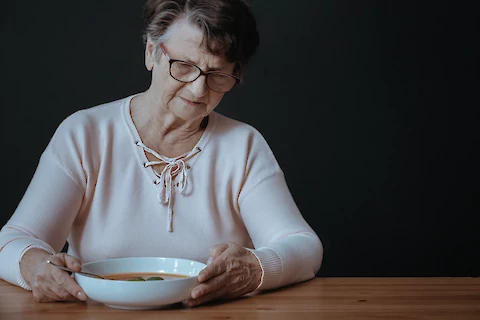
The health and nutrition needs of older adults can be difficult to understand and manage. Often, significant issues can fall through the cracks as caregivers miss signs and symptoms of common disorders. One commonly missed challenge is eating disorders, which can show up in people of any age–including seniors. By understanding eating disorders and learning to identify their symptoms, caregivers can ensure that their loved ones receive the care they need.
Understanding Eating Disorders
Eating disorders are serious mental health conditions that impact an individual's relationship with food and eating. These afflictions are commonly associated with younger people, particularly women, but they can affect individuals of all ages and genders. Anorexia, bulimia, and binge eating disorder are just a few examples of serious eating disorders that can affect older adults.
Why Eating Disorders Often Go Unnoticed in Older Adults
Eating disorders often fly under the radar in older adults due to many societal misconceptions. For instance, many believe eating disorders only affect young people, disregarding the possibility that a senior might be grappling with such an issue. Moreover, symptoms of eating disorders can overlap with other age-related conditions, making them harder to identify. Conditions such as depression or dementia can mask the signs, leading to delayed diagnosis and treatment. Furthermore, many caregivers are not adequately trained to recognize eating disorders in seniors, leading to missed opportunities for early intervention.
Signs of Eating Disorders in Seniors
Signs of eating disorders can seem very subtle, especially at first. Physically, rapid weight loss or gain, dental issues, or constant fatigue might be indicators. Behaviorally, seniors might exhibit changes in eating patterns, show an unusual preoccupation with weight and diet, or demonstrate secretive eating behaviors. Emotionally, look out for heightened levels of stress, anxiety, or depression, which can be intricately linked to eating disorders.
How Caregivers Can Support Older Adults with Eating Disorders
Supporting seniors with eating disorders requires an empathetic and considerate approach. Open and compassionate communication is key to understanding their struggles and encouraging them to seek professional help. Caregivers should refrain from judgment or stigmatization, as these can exacerbate feelings of guilt or shame associated with eating disorders. Instead, foster an environment that encourages healthy eating habits and self-care, emphasizing the importance of mental health in the journey toward recovery. Furthermore, caregivers can encourage seniors to seek medical attention and help them connect with a care provider who can help them manage their physical and emotional health needs.
Support and Assistance Caring for Seniors
Eating disorders are a pressing concern that can affect an older adult's quality of life. Recognition and early intervention can drastically alter the trajectory of these disorders, leading to improved health outcomes. If you or a loved one live in Waxahachie, Ennls, Mansfield, Midlothian, or Alvarado and need help caring for a senior loved one, including in-home support for a senior struggling with an eating disorder, Senior Helpers Ellis County can help. Contact us to learn more about our home care services and the support we can offer.